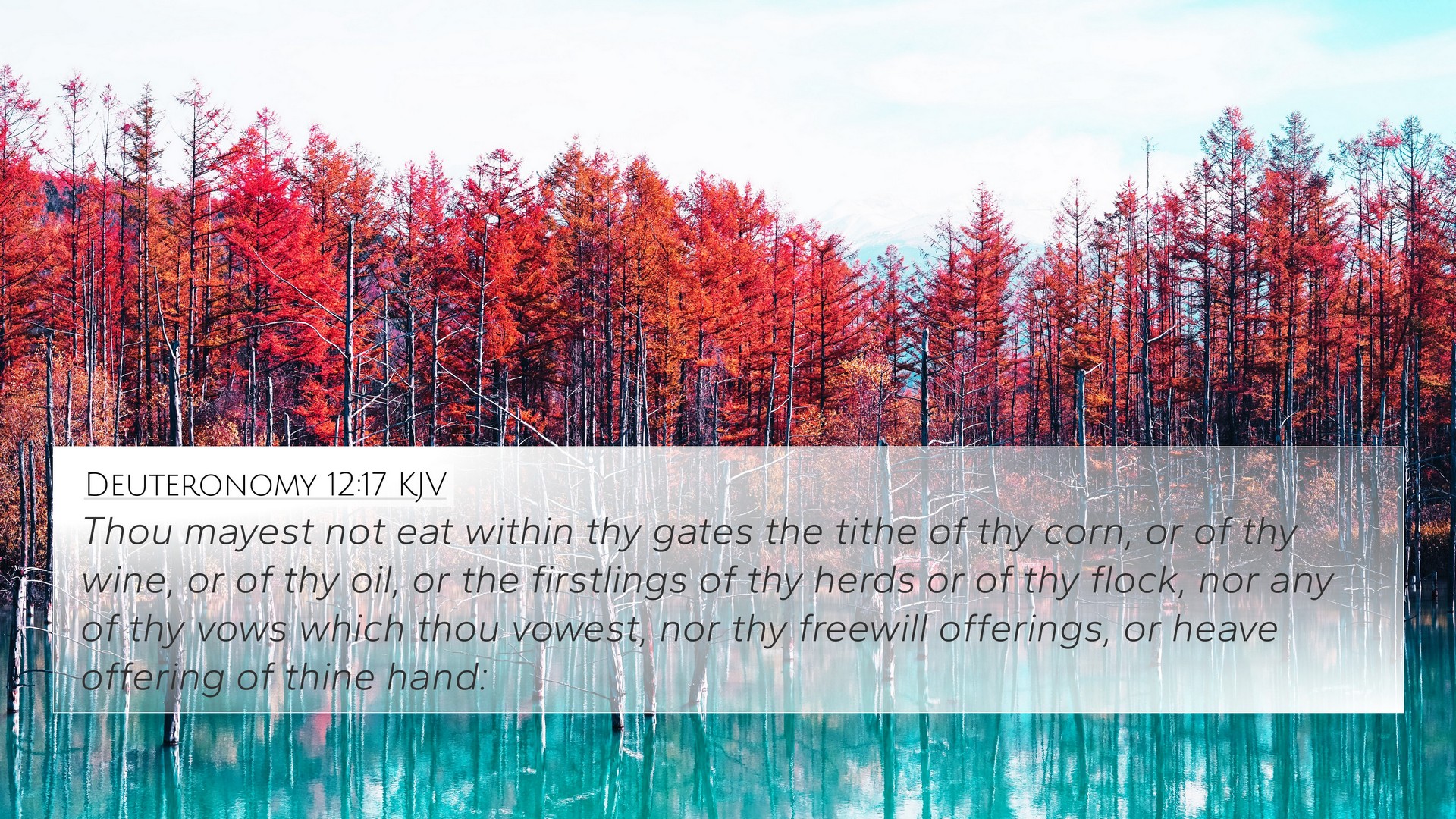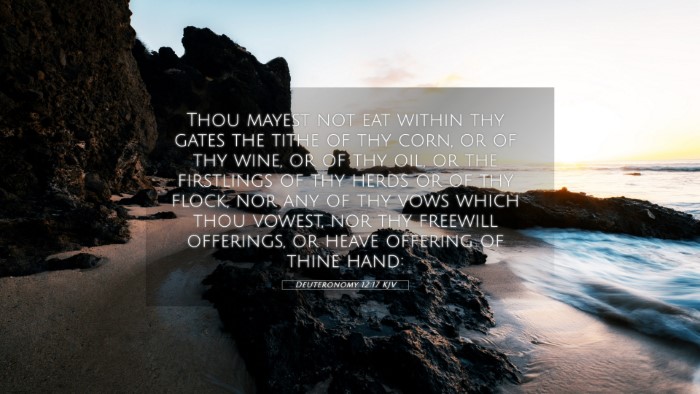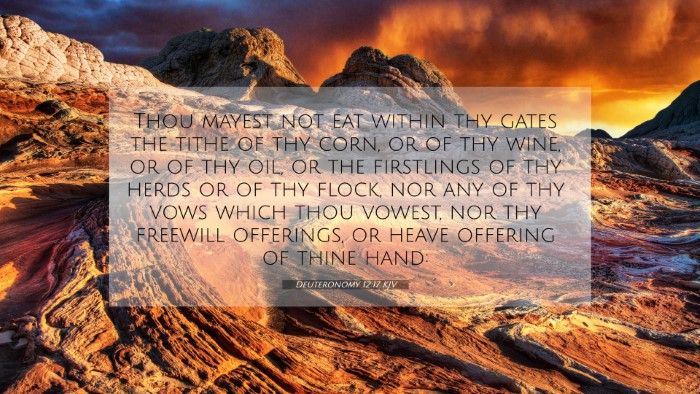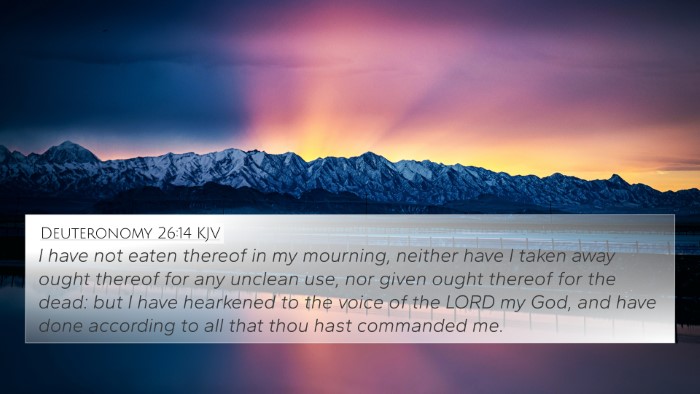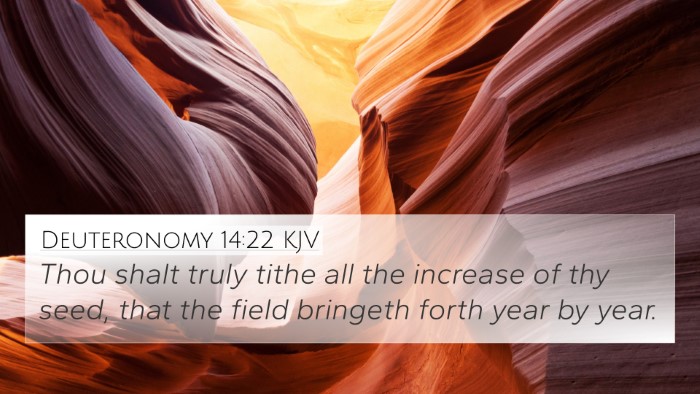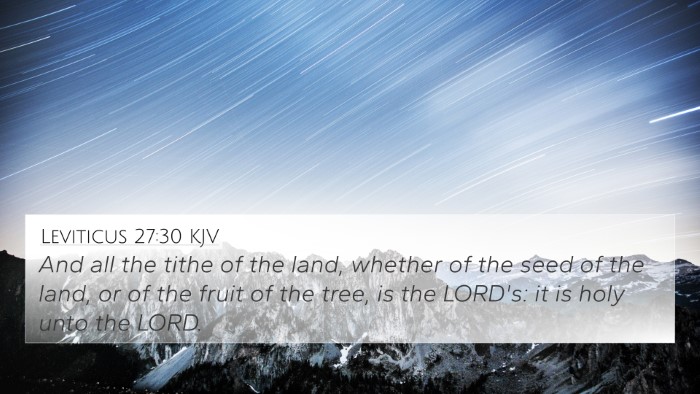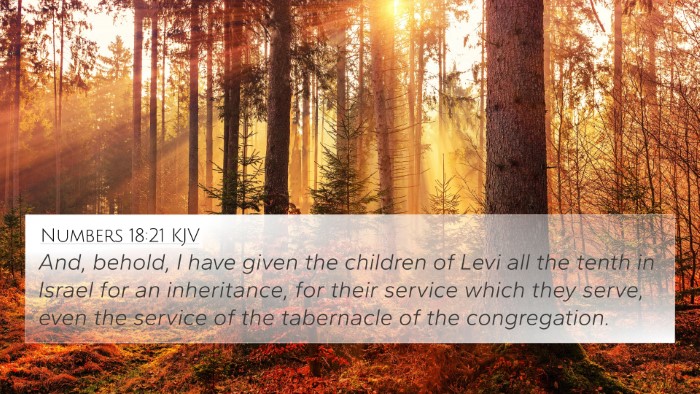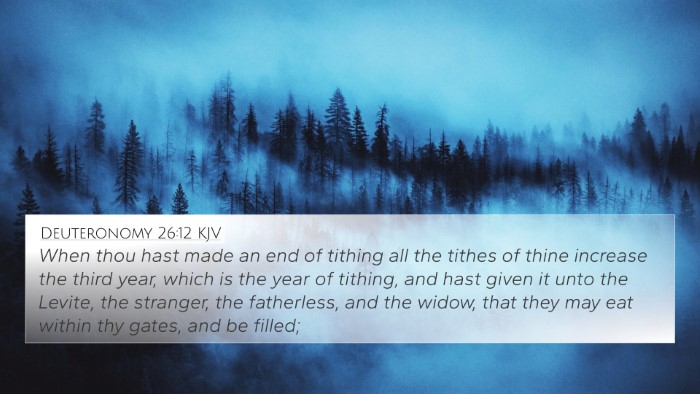Understanding Deuteronomy 12:17
Deuteronomy 12:17 states: "You may not eat within your gates the tithe of your grain, or of your wine, or of your oil, or the firstborn of your herds or of your flock, nor any of your vows which you vow, nor your freewill offerings or the heave offering of your hand."
Comprehensive Analysis
This verse establishes significant guidelines regarding the offerings and sacrifices that the Israelites were required to present in a particular manner. It emphasizes that certain sacred offerings should not be consumed or utilized within their own gates but rather presented in the designated places of worship.
Key Insights from Commentaries
-
Matthew Henry:
Matthew Henry notes that this verse highlights the importance of honoring God with the offerings. The act of bringing offerings to a central location (the place God chooses) reinforces the concept of community worship and maintaining holiness around sacred acts.
-
Albert Barnes:
Albert Barnes expands on the idea that God desires a structured approach to worship. By placing restrictions on where offerings are to be consumed, it emphasizes the sanctity of these gifts and the necessity of observing divine directions in worship practices.
-
Adam Clarke:
Adam Clarke elaborates on the cultural implications of these instructions, stressing that communal offerings foster unity among the people and point to the shared responsibility of worshiping God in a designated manner, signifying respect for divine commandments.
Thematic Connections
The thematic message of Deuteronomy 12:17 encourages believers to reflect on how offerings and worship are carried out. This notion corresponds with numerous biblical texts that detail how God expects worship to be conducted in reverence and communal acknowledgment.
Related Bible Cross-References
- Leviticus 2:12: Discusses the offerings of grains and their presentation.
- Numbers 18:26: Elaborates on the tithe and presents instructions on its use.
- Deuteronomy 14:23: Indicates where the tithe should be eaten, further emphasizing communal worship.
- Malachi 3:10: Encourages bringing the full tithe to the temple, reinforcing the need for offerings to be presented in the right place.
- Matthew 5:23-24: Details the importance of reconciliation before offering, linking personal conduct with worship.
- 1 Corinthians 9:13-14: References the obligation of serving in God’s house with regards to offerings and support for ministry.
- Hebrews 13:15: Encourages presenting fruit offerings through praise, reaffirming the significance of holy offerings.
Inter-Biblical Dialogue
Deuteronomy 12:17 can be viewed within the broader context of biblical teachings. The act of communal worship and offerings, as highlighted in this verse, reflects a continuity found throughout the Scriptures—from the Old Testament laws to the New Testament realities. Understanding how these themes interweave can guide believers in their worship practices today.
Practical Applications
In applying the teachings from Deuteronomy 12:17, worshipers are encouraged to:
- Prioritize Community Worship: Engage actively in communal gatherings where offerings are presented, underlining unity in faith.
- Follow Divine Instructions: Ensure that worship practices align with biblical mandates, affirming the sacredness of offerings.
- Reflect on Sacred Acts: Consider the significance of contributions and offerings, recognizing them as acts of worship and devotion.
Conclusion
Deuteronomy 12:17 serves as a vital reminder of the importance of worshiping God through structured and community-centered practices. By understanding this verse through various commentaries and cross-references, believers can deepen their appreciation and practice of biblical worship and learn how to interconnect different scriptures meaningfully.
Exploring Further
For those looking to delve deeper into the connections between Bible verses and exploring how they relate to Deuteronomy 12:17, tools for cross-referencing such as a bible concordance or bible cross-reference guide can provide valuable assistance in understanding biblical themes and the relationships present within Scripture.
